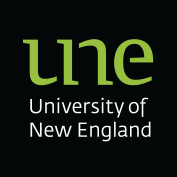Dr Eric Stuen is a visiting scholar from University of Idaho, where he is an Associate Professor of Economics. Dr Stuen main research interests include immigration, knowledge spillovers and economic growth, especially the relationships between them. He has also collaborated on projects related to development economics, agricultural economics and wine economics. According to Dr Stuen, grape acreage, income-weighted population, human capital and concentrations of winemaking talent are key explanatory variables of why wineries are in close proximity.
In his research in wine economics, Dr Stuen has looked at the clustering of the wine industry. Specifically he aimed to gain an understanding as to why winemaking firms tend to locate near to other winemaking firms. An obvious reason is so that they can all be close to the main raw material, grapes. However, according Dr Stuen’s research this is not always the case. In Dr Stuen’s home state of Washington, one of the main winemaking clusters is located some 250 km from the main grape-growing region, and on the other side of a mountain range.
Stuen then turned his attention to another factor influencing such clustering: the role of knowledge spillovers. This means the winemaking knowledge of the employees of one firm spreading to the employees of other firms. In clusters, wineries are able to share such knowledge through meetings, trade shows and also ‘poaching’ (hiring away) winemakers from each other. This is a very similar tactic which goes on in several other industries.
In his research, Dr Stuen has analysed historical data on the wine industry in Washington State. He examined the relationship between growth in the number of wineries in a particular location with the presence of other wineries and presence of early wineries. So far, the analysis indicates that the presence of early wineries accelerates the growth of the number of wineries in an area. However, this preliminary analysis was done at the zip-code level. This is too small to capture the effects of knowledge sharing well. Zip-codes, or postal codes, are very small geographic areas, while knowledge spillovers tend to occur at the city or metropolitan level. Further analysis will take account of the distance to sources of early winemaking knowledge in Washington State generally.
Many rural towns and areas would like to increase their economic activity, and promotion of the wine industry seems like a natural one. This research indicates that government incentives for wineries to locate in locations where there are not any wineries is unlikely to work. Successful promotion of the wine industry is likely to occur instead in places where winemakers are already attracted by high-quality grapes. In these places, Dr Stuen determines that governments can promote winemaking education, wine tourism and subsidize new wineries to help the industry grow faster.
More of Eric’s research can be read here: https://sites.google.com/view/ericstuen/home



Recent Comments